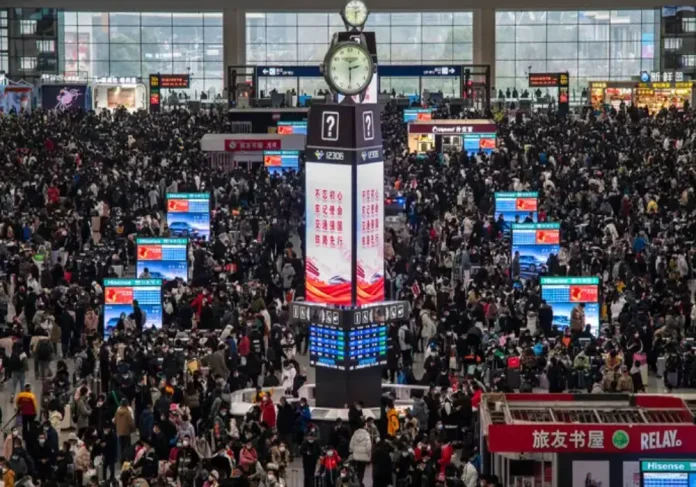Beijing, China: China has reported a population decline for the second consecutive year, coupled with a record-low birth rate in 2023, raising concerns about the long-term growth prospects of the world’s second-largest economy. According to figures released by the National Bureau of Statistics (NBS) on Wednesday, the overall population in mainland China dropped by 2.08 million last year to 1.4097 billion, down from 1.4118 billion in 2022. China’s overall population fell by 2.08 million last year, while births declined by 5.6 per cent to 9.02 million.
The alarming trend is further highlighted by the fact that slightly over 9 million babies were born in 2023, marking the lowest level since records began in 1949. Meanwhile, approximately 11 million people died, pushing the death rate to a five-decade high.
This demographic shift comes as the Chinese economy officially achieved a 5.2% gross domestic product (GDP) growth rate in the same year. However, the country grapples with multifaceted threats to sustained development, including a property market crisis, weak investor confidence, and subdued external demand.
Once a significant beneficiary of a demographic dividend, China now faces longer-term challenges such as a diminishing working-age population, weaker spending power, and strains on its social security system. Researchers warn that addressing these issues is imperative for the nation’s continued development.
Despite these challenges, China is strategically positioned to mitigate some demographic concerns through its robust development of robotics, according to a research note from Huafu Securities published last month. The note states that “replacing humans with robots is showing its economic benefits amid a labour shortage and rising labour costs.”
As China searches for solutions to counteract its shrinking labour force and ageing population, the focus on robotic manufacturing emerges as a potential answer to both problems. In 2022, China installed half of the world’s industrial robots, according to data from the NBS and the International Federation of Robotics (IFR). The embrace of automation is seen as a key strategy to address the challenges posed by demographic changes and ensure the country’s economic resilience in the years to come.



